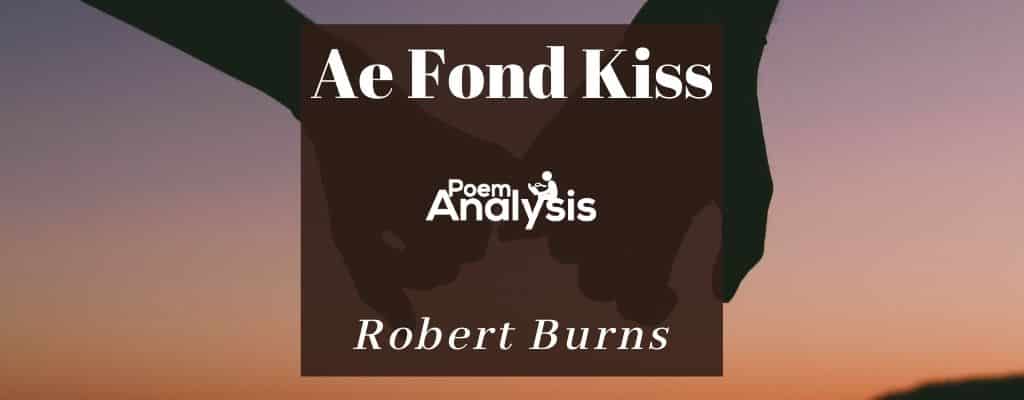

Being a bagpipe maker and music lover, he accepted the challenge without one word of hesitation. I wanted to sing it in B which is not a friendly traditional instrument key. That's just beautiful.ĮJ Jones made a special small pipe chanter just for this song. Of all the loves we leave behind, to be able to be grateful for the broken heart and wish the other a fare thee well. The song was written in 1791 and sent in a letter to Mrs Agnes McLehose (addressed as ‘Nancy’ in. Just look at the words in the last two verses. Ae Fond Kiss is one of Robert Burns’s most famous love songs, one that outlines not the joy that love can bring but the acute pain of a broken-heart. Their recording never ever fails to bring tears to my eyes. Song (Ae fond kiss) Lyrics Ae fond kiss, and then we sever Ae fareweel, and then forever Deep in heart-wrung tears I'll pledge thee, Warring sighs and groans I'll wage thee. Both the group and the individual are worth looking up. I believe Julie Fowlis is the singer on this track. My favorite recording of this song is by Dochas.

GradeSaver, 1 July 2021 Web.The final track is a well known Robert Burns song. Next Section Poem Text Buy Study Guide How To Cite in MLA Format Stern, Eleanor. "Ae Fond Kiss" is among his more famous poems, and is popular as a song as well as in its written form. Burns is also known as one of Scotland's most iconic writers, and in many poems-including this one-he opts to use a blend of standard English and Scots-influenced dialect. Robert Burns, sometimes called a proto-Romantic poet, here takes on his subject matter through a typically Romantic lens, focusing on intense feeling and the speaker's subjectivity. Ae Fond Kiss (1791) is a love poem by the famous Scottish poet Robert Burns (17591796) intended to be set to music. Throughout, the speaker explores not only his feelings of love and sadness, but also the uncomfortable fact that his love is precisely what has enabled his sadness, rendering the two states of being inseparable.

The poem is composed of three stanzas of eight lines each, following an AABBCCDD rhyme scheme. Tonally dramatic and mournful, the poem is thought to be autobiographical: it was written by Burns to a mistress prior to her 1971 departure from Scotland to Jamaica. It was first published in the fourth volume of the series Scots Musical Museum, published by James Johnson, in 1792. " Ae Fond Kiss" is a lyric poem written by Robert Burns in which a speaker addresses his lover on the occasion of their permanent parting.


 0 kommentar(er)
0 kommentar(er)
